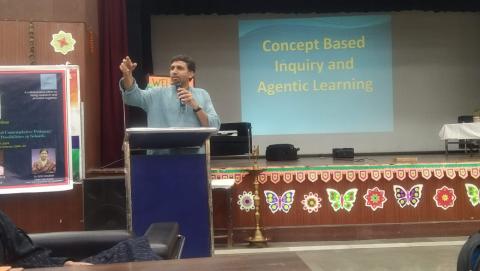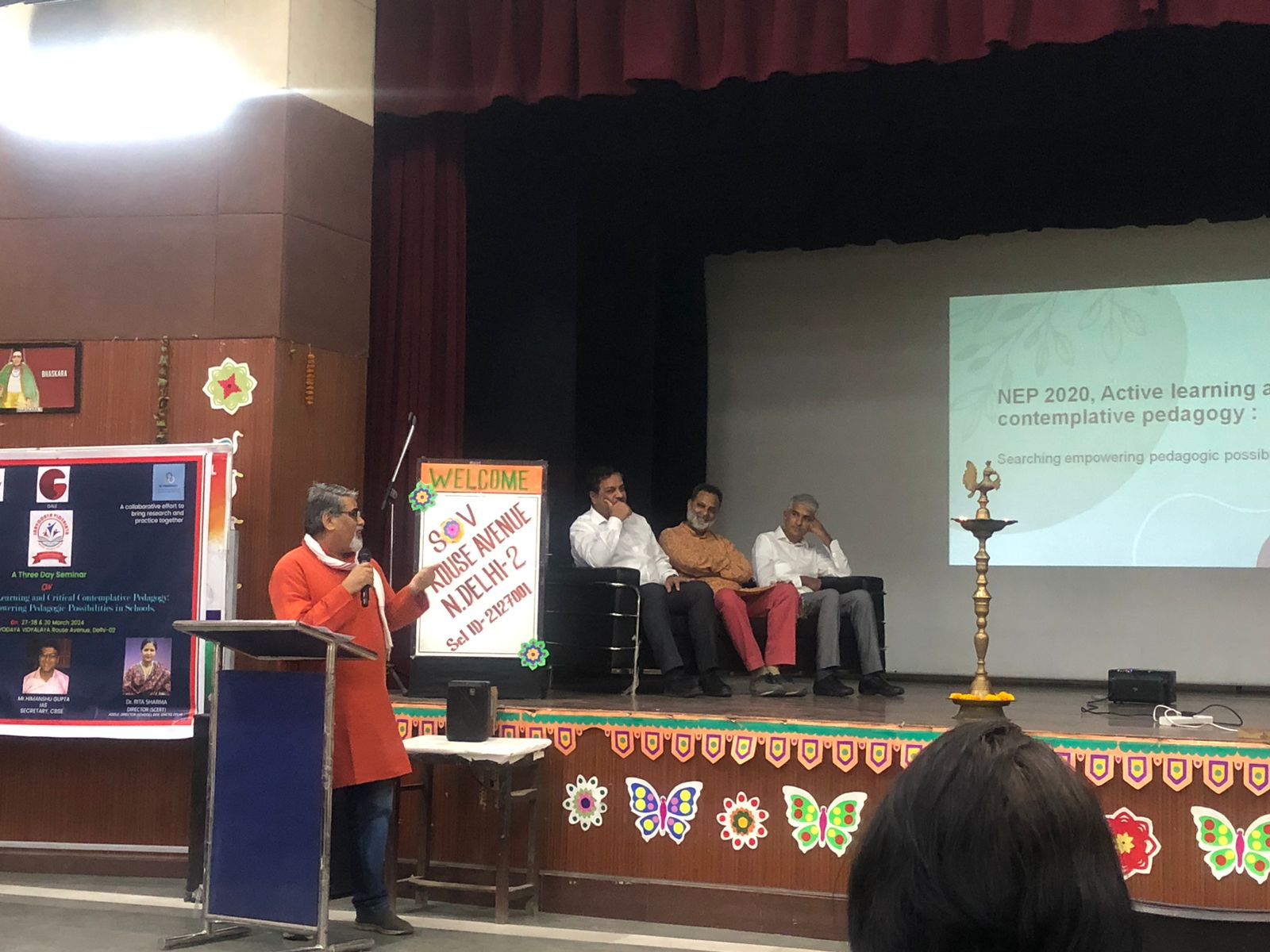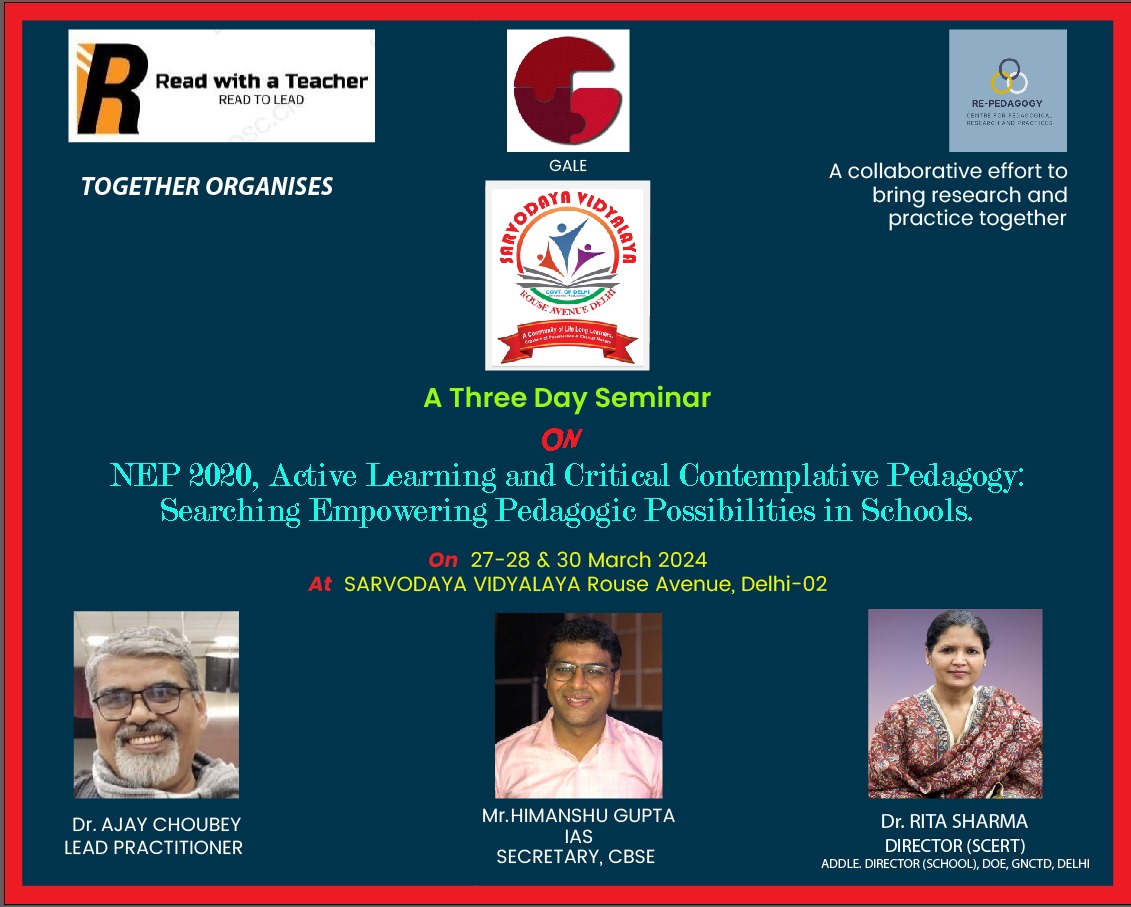
From Consumers to Creators: Empowering Teachers as Knowledge Producers
A closer look at the policy documents reveals that at the policy level, we understand that the teacher's role is crucial in bringing about change in our classrooms. This is why the National Focus Group report on teacher education (2006) states, “No system of education can go beyond the quality of its teachers.” The National Education Policy (2020) acknowledges that we must attract the best and brightest to the teaching profession. When considering these two statements together, we can infer that we need the best teachers, and all teaching-learning is subject to the quality of teachers we have. Attracting the best and brightest to the teaching profession is a separate issue. We must also consider what to do with those who are already in the system, recognizing that each teacher, during their service of around three decades, will interact with and influence the lives of approximately ten thousand children each. How do we perceive them?
A closer look at the in-service programs reveals that all we have designed for them are various types of training. The underlying assumption is that research and training institutions possess knowledge, and teachers need to be trained in the skills to impart that knowledge. We imagine teachers as consumers of knowledge whose main role is to transmit it, with the knowledge residing somewhere above and descending to teachers in the form of textbooks and training materials. It's beyond our imagination to consider teachers as knowledge producers.

However, there are spaces where teachers are envisioned as knowledge producers. Dr. Ajay Choubey, principal at Sarvoday Vidyalaya, Rouse Avenue, appears to be a one-man army on a mission to restore agency to teachers. Over the last ten years, in different schools and institutions where he has served, he regularly conducts seminars and conferences that are imagined, designed, and organized by teachers themselves. He refrains from conducting training sessions. Recently, he organised a seminar titled "NEP 2020, Active Learning and Critical Contemplative Pedagogy: Searching Empowering Pedagogic Possibilities in School." The title itself indicates his belief in the agency of teachers. I am quite overwhelmed by the unique space he has created for teachers. As a teacher, I have had numerous opportunities to attend seminars and conferences, often organized in university spaces or institutions of higher learning. It's almost rare when such seminars are organized in schools. Unfortunately, we have developed a dichotomy: seminars and conferences for university teachers and researchers, training workshops for school teachers. In this dichotomy, we have created a clear-cut division between knowledge producers and consumers. Through spaces for seminars and conferences in schools, Dr. Choubey is trying to bridge the ever-existing gap between the university and school, in other words, his mission is to dismantle the boundary between the producer and consumer of knowledge.
It was heartening for me to see how people from diverse fields came together to discuss "Critical Contemplative Pedagogy." It's the power of his authentic effort and intellectual capacity that he could bring together top bureaucrats, academicians, practitioners, and researchers for three days in a space located within a school. For the participating teachers, it was a space that identified them as knowledge producers. Through presentations, deliberations, questioning, and contemplation, they actively participated in it.
This space always fascinates, not just for the idea of how it envisions teachers but also for the unique insights it offers. It was an eye-opener for me to see the approach to teaching and learning through a contemplative approach, deeply embedded in India's tradition and culture. For centuries, we didn't have schools and colleges in the form we know today, yet we always produced scholars, and perhaps the finest approach to achieving such towering scholarship was through contemplation. Somehow, by design to maintain Western hegemony on the approach to learning, we continued to celebrate the constructive approach to learning and ignored contemplation as a method of learning. As a result, we can see a great loss in one of the significant aspects of our approach towards understanding a phenomenon: intuition. Interestingly, Harvard professor Bruner has also argued for this in his book "The Process of Education."

For me, and I assume for all my friends, the three-day seminar was not only emancipatory in its design, but it was also a great opportunity to listen to domain experts, which helped me develop many insights. I hope that through "Re-padagogy: Center for Pedagogical Research and Practices," an institutional space created by Dr. Choubey, we will create many more such opportunities for teachers. In his mission to equip teachers with agency, "Read with a Teacher" will work shoulder to shoulder. For the last three years, "Read with a Teacher" has provided opportunities for intellectual stimulation through discussions around books related to educational literature and has organized 50 sessions so far. Let’s come together to multiply such spaces that imagine teachers as knowledge producers.
- Log in to post comments
